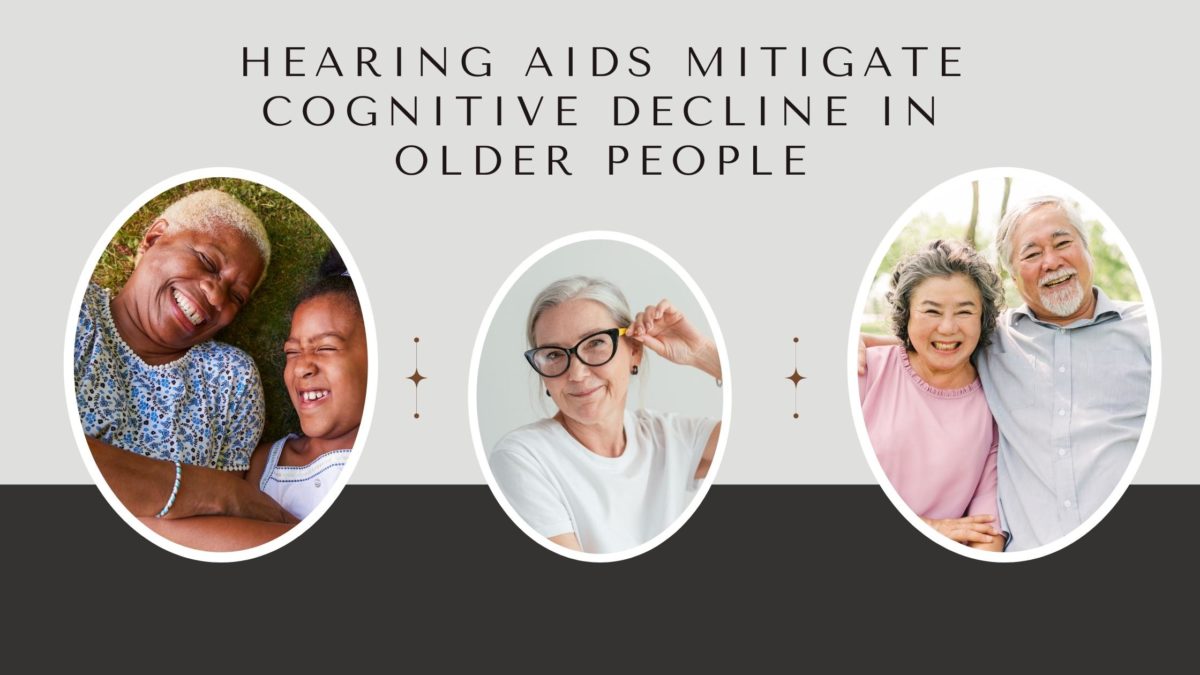- As an Invisible Condition, Hearing Loss Often Goes Ignored - October 17, 2022
- All About Assistive Listening Devices & More - October 1, 2022
- Tired of Loud Restaurants? Time for a Hearing Test! - September 17, 2022
Cognitive decline is one of the main concerns for those with hearing loss. Studies in the last decade have found that hearing loss is a major predictor of whether a person will experience Alzheimer’s or dementia, and the World Health Organization (WHO) went so far as to name hearing loss the #1 (out of 12) modifiable risk factor in the development of Alzheimer’s.
Hearing Loss Multiplies the Risk of Alzheimer’s and Dementia
In multiple studies, it’s been shown that hearing loss increases the risk of developing dementia proportionally to the degree of hearing loss. Mild hearing loss makes cognitive decline and dementia twice as likely. Moderate hearing loss makes the risk threefold. Severe to profound hearing loss puts a person at five times the risk of developing dementia as a person with normal hearing.
While these statistics are striking, they are by no means a guarantee that a person with severe hearing loss will succumb to Alzheimer’s. Many people who have hearing loss are otherwise at very low risk of Alzheimer’s. If you have a 0.5% chance of Alzheimer’s, then severe hearing loss increases your risk to only 2.5%.
Do Hearing Aids Help?
Still, while this risk has been statistically identified, it has not been clear whether treating hearing loss could decrease the risk of cognitive decline, or perhaps slow the progression. This is because it is not clear whether hearing loss causes cognitive decline, or whether hearing loss and Alzheimer’s go hand-in-hand. After all, the same systems in the body are at fault. These are the two primary hypotheses about the statistical significance of hearing loss in Alzheimer’s cases. It may be that the degeneration of tissues in the central nervous system causes dementia at the same time as it causes hearing loss, or it may be that hearing loss reduces brain stimulation, which in turn causes dementia. These two hypotheses are known as the “common cause hypothesis” and the “cascade hypothesis,” respectively.
A 2018 study in the Journal of the American Geriatric Society has helped to tease out the truth. The study examined data collected at two-year intervals between 1996 and 2014. 2040 study subjects were given a basic cognitive skills test. Those who self-reported the use of hearing aids were found to have some cognitive decline over the 18 years, but less than those who did not wear hearing aids. This result suggests that hearing aids do help mitigate the effects of hearing loss on cognitive ability.
Part of a Whole
While cognitive decline is perhaps the biggest concern for those with hearing loss above age 70, there are many ways in which hearing aids facilitate a healthier lifestyle. Avoiding cognitive decline is just one of many positive effects that hearing aids have on our lives, many of which also likely contribute to the avoidance of cognitive decline!
Those with hearing aids can carry on conversations more easily, which in turn helps them maintain the appeal of social events. Social time is one of the main ways we exercise our brains, as few circumstances engage our brains so completely as talking with another person.
Without hearing aids, social events become fatiguing and unrewarding for a person with hearing loss. They tend to avoid more and more social events as time passes. Traveling to and from social outings is also an important form of exercise, as well as another opportunity to engage ourselves in the world. As we shrink from social events, we may also shrink from going outside. Indeed, those with untreated hearing loss tend to lead more sedentary lifestyles, spend less time outdoors, and get less physical activity in a day. All of these things contribute not only to cognitive decline but to depression and decreased physical fitness, which also in turn contribute to cognitive decline.
We might speak of a vicious cycle of negative outcomes when it comes to untreated hearing loss. It’s hard to pinpoint exactly which problem associated with untreated hearing loss is the worst since they all seem to work together and contribute to further problems.
But one thing is certain: Once hearing loss becomes an issue, the best thing we can do for our long-term health and well-being—as well as our immediate enjoyment of life—is to get a set of hearing aids and start wearing them regularly.
If you or a loved one is having hearing issues, make an appointment for a hearing test today and find out how promoting your hearing health promotes your overall health and well-being!

